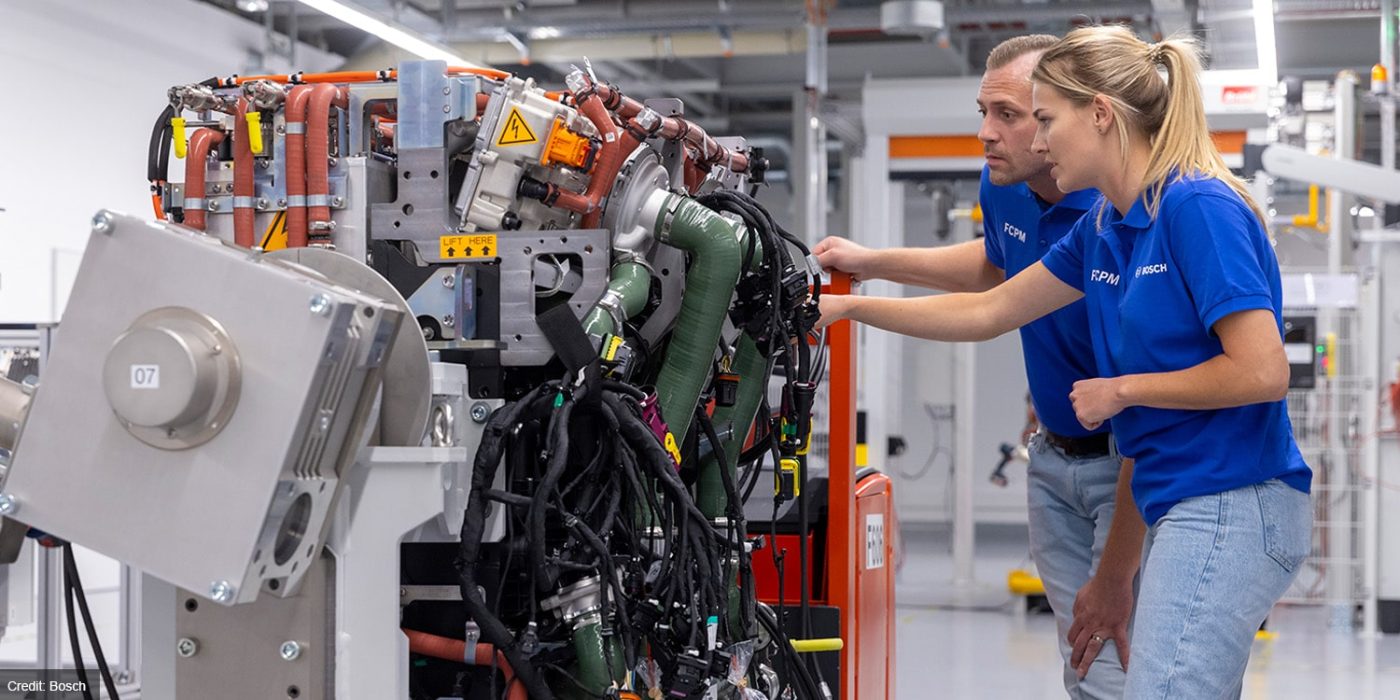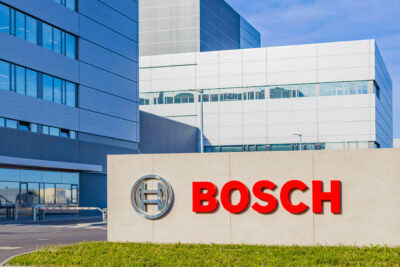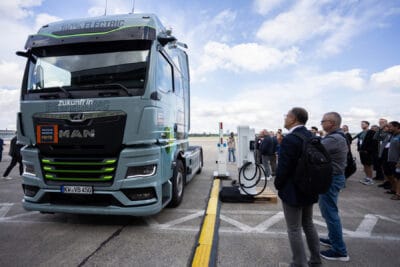Bosch starts producing fuel cell drives for Nikola in Germany
Bosch has just launched series production of its “fuel cell power module” at its plant in Stuttgart-Feuerbach, Germany. The US startup Nikola is the first customer with its Class 8 hydrogen truck set to enter the North American market in Q3 this year.
Although the final assembly of the fuel cell system will take place in Stuttgart-Feuerbach, the supplier emphasises its reliance on a global manufacturing network and the “prowess of its German locations” fuelling the hydrogen economy. For example, the stacks for the Feuerbach production come from Bosch’s plant in Bamberg. The factory in Homburg delivers system components such as the electric air compressor or the recirculation fan. Critical data, however, such as the number of power modules being produced, have not been disclosed, but plenty of proud statements were made.
“Bosch is one of the very few companies capable of mass producing technology as complex as fuel-cell stacks,” said Markus Heyn, member of the Bosch board of management and chairman of Bosch Mobility. “We don’t just have the required systems expertise, but also the capability of quickly scaling up new developments to mass production.”
The company has begun producing the fuel cell drive in Chongqing simultaneously with production in Germany. In China, the Bosch plant in Wuxi supplies the components. And Bosch reportedly plans to manufacture stacks for mobile applications at its US plant in Anderson, South Carolina.
“Bosch is the first company to manufacture such systems in China and Germany,” says Stefan Hartung, chairman of the board of management on Bosch Tech Day 2023. “Bosch knows its way around hydrogen, and Bosch is growing with hydrogen.” The company targets to generate roughly 5 billion euros in sales with hydrogen technology by 2030.
At this year’s Bosch Tech Day, however, Nikola’s Tre truck for the US market was not on display. Press photos show the European model, the Iveco Heavy Duty FCEV – Iveco had bought Nikola’s shares in the European joint venture based in Ulm at the beginning of May and subsequently renamed the division from Nikola Iveco Europe to EVCO. Bosch also did not mention Nikola’s plans to localise the supply chain and, for example, assemble Bosch fuel cell power modules in Coolidge to reduce the material cost of the trucks.
Nikola aside, Bosch reaffirms its conviction that “Only with hydrogen can there be a climate-neutral world”. Specifically, the company expects that by 2030, a fuel cell will power every fifth new commercial vehicle weighing six tonnes or more. By 2026, the supplier wants to invest almost 2.5 bn euros in developing and producing its H2 technologies – one billion more than initially budgeted for 2021 to 2024. However, this is not only about solutions for (heavy) vehicles but also about hydrogen generation.
At the beginning of 2023, Bosch started prototype construction for the electrolysis process with proton exchange membranes – this is the reverse of the energy conversion in the mobile fuel cell. From autumn onwards, the company plans to provide 1.25-megawatt prototypes for pilot applications and says it is on course for a start of series production in 2025.
According to the company, more than 3,000 people work at Bosch on hydrogen technologies, more than half of them in Europe. Most positions were filled internally, mainly with employees from Bosch’s powertrain division.
However, the further prospects of success for the hydrogen business are linked to the political framework. In Hartung’s opinion, Europe, in particular, must do much more to counterbalance the strong dynamics in other regions of the world, such as the USA. Specifically, the Bosch chairman formulated four demands on German and European politicians: “First, we have to step up the pace of hydrogen production in the EU. Second, global supply chains have to be set up, and third, hydrogen has to be used in all sectors of the economy.” As a fourth point, he stressed the importance of quickly setting up infrastructure for distributing hydrogen in Europe.
With reporting by Sebastian Schaal, Germany.





2 Comments